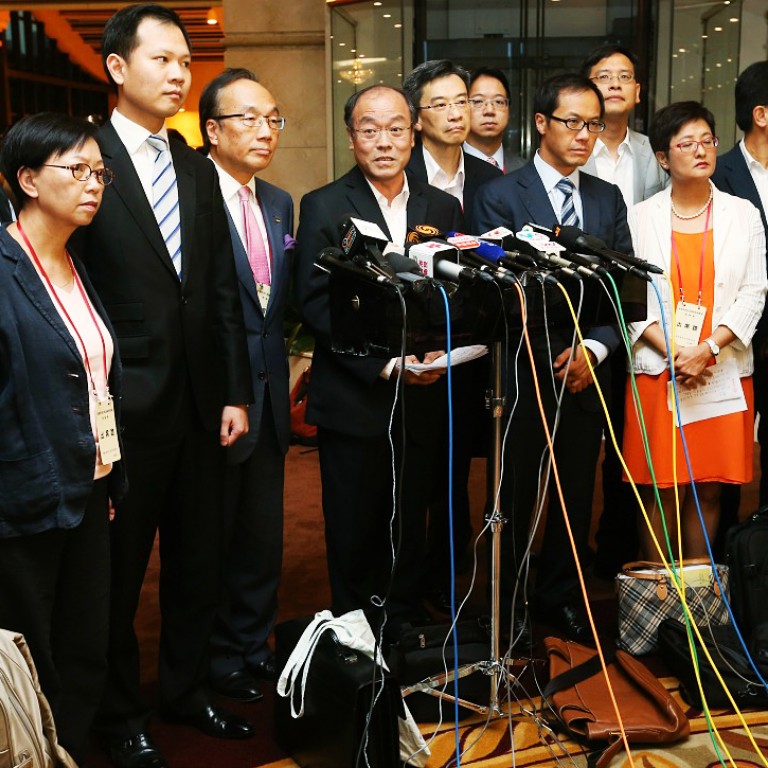
New | Majority decisions by 2017 nominating committee would be ‘suppression of democracy’
Pan-democrats hit back at comments made by top Beijing official Li Fei about how the nominating committee should work, as Shenzhen meetings conclude
A pan-democrat lawmaker has hit back at a top Beijing official who said that the nominating committee in 2017 should make majority decisions on putting forward candidates, calling the idea a “suppression” of democracy.
Dennis Kwok of the Civic Party said the comments by Li Fei, chairman of the Basic Law Committee, suggested that hopefuls for the chief executive election will be required to get the backing of half of the nominating committee to enter the race.
That would impose an unreasonable restriction on potential candidates, as well as meaning the committee would be overstepping its role, which is to put forward a shortlist of candidates and not to hold an internal election itself, Kwok said.
Li Fei made the comments at a seminar in Shenzhen attended by 48 of Hong Kong’s 70 lawmakers, which pan-democrats say has failed to narrow differences between the pro-democracy camp and Beijing.
The Standing Committee of the National People’s Congress – the top national legislature – meets next week to lay down a framework for the 2017 election.
Pan-democrats fear that a nominating committee stacked with Beijing loyalists will screen out potential candidates that the central government does not approve of, undermining the value of the 2017 election.
The likelihood of that scenario would be greatly increased if candidates needed majority support from the committee, they say.
“The Bar Association issued a statement in April saying that there must be no unreasonable restriction [in the nomination process] because the nominating committee’s job is to put forward candidates, not to hold an internal primary election,” Kwok told Commercial Radio on Friday morning.
“The nomination [process] must allow all factions across the political spectrum to have an equal right of participation … it is not democratic to require 50 per cent backing,” the legal sector lawmaker added.
Albert Ho Chun-yan of the Democratic Party said pan-democrats maintain their stance that the model for the election must meet international standards for universal suffrage, meaning possible candidates could not be screened out by the nominating committee because of their political views.
Li voiced Beijing’s stance – that there are no international standards for universal suffrage. ““The tone of Li’s responses to our remarks was mild, but his position was firm and clear,” said Ho.
Labour Party lawmaker Cyd Ho Sau-lan said Beijing continues to argue that a candidate who could confront the central government must not be allowed to stand in the election as it would be a threat to national security.
She said she was “not optimistic” about a consensus being reached.
Albert Ho and Kwok were disappointed with Li’s remarks that the pan-democrats were looking for an election model that would favour them.
Albert Ho said they were in fact striving for a reform proposal that would give Hongkongers a genuine choices of candidates in 2017.
The pan-democrats said they remain willing to continue efforts to break the political deadlock.

